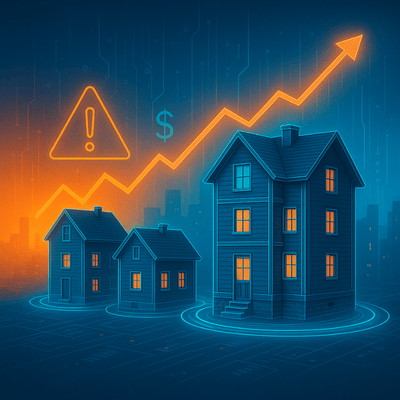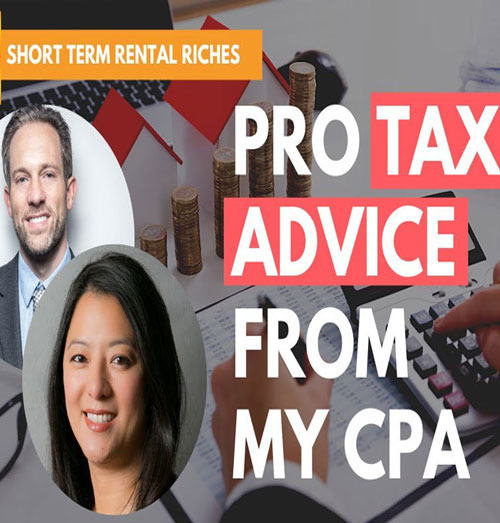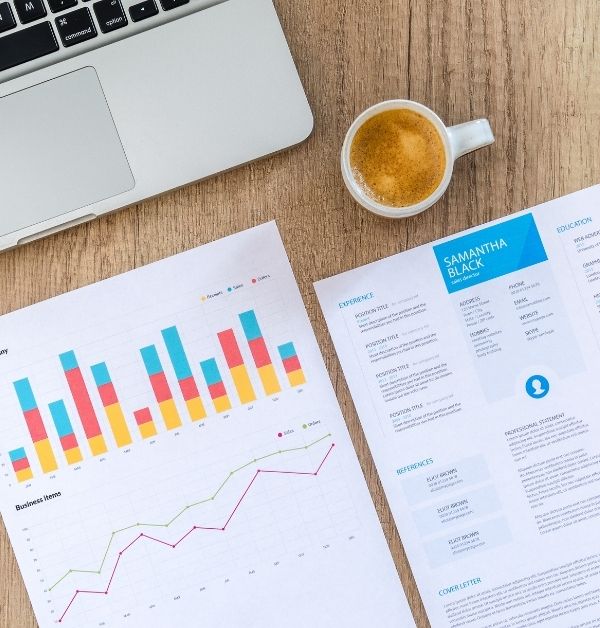218. Why You Should Never Opt For a Shorter Loan Term
In this episode of the Short Term Rental Riches Podcast, we dive deep into the often-debated topic of whether to choose a 15-year or a 30-year loan for real estate investments. We unravel the math, the psychology, and the economic rationale that make 30-year loans a more strategic choice for most investors. Join us as we break down the key advantages, including lower monthly payments, investment opportunities, and the impact of inflation and tax benefits on your overall financial strategy.
Whether you’re a seasoned investor or just starting out, this episode is packed with valuable insights to guide your real estate financing decisions.
In this episode, you’ll learn:
- Financial Flexibility
- Inflation’s Silver Lining
- Tax Benefits
- Investment Opportunities
- Risk Mitigation and Qualification for Future Loans
Need help managing your short-term rental and you don’t want to go it alone? Shoot us a message here and we’ll see if we can help.
Are you enjoying the podcast? Please subscribe, leave a rating and a review, and share it! This helps us reach others that may find the info helpful as well.
You can find all of our links here including our recommended resources, short-term rental playbook, Instagram, and more!
Click Here to view TranscriptThe question comes up all the time, should I get a 15-year loan instead of a 30-year loan because I’m going to pay so much less interest? What you need to ask yourself here is why would the bank offer me this loan product at a lower interest rate if it was actually better for me and not better for them? I got news for you. It is better for the bank and I’m going to explain why in this episode. Stay tuned
Welcome to short-term rental riches. We’ll discuss investing in real estate but with a specific focus on short-term rentals. Quick, Actionable items to Acquire, Manage and Scale your portfolio. I’m your host Tim Hubbard.
Welcome back to the Short-Term Rental Riches podcast. I’m happy you’re here again. And today we’ve got a topic that comes up all the time, all the time. And there’s a lot of little details that go into this question and it’s should we get a 15-year loan or a 30-year loan or should we get a shorter loan versus a longer loan because we’re going to pay less in interest? We’re going to break that all down today, including the math and why a bank would even offer this to you because spoiler alert, it’s better for the bank. So, before we get into the details, there might be one or two situations where people are just better off with a shorter-term loan.
Now, the first one is, is if you just psychologically feel better with no debt. And I know this is the whole Dave Ramsey school of thought, but the reality is the math would tell you not to do this. And so, we’re going to get into that. But I do understand that there’s just some peace of mind of not having to owe anyone for a piece of property you have. So that’s the first thing. The second reason why you might opt for the shorter-term loan or no loan at all is if you are retired, you’re not planning on doing anything else with your extra money and you might as well pay off your mortgage loan. So that is the only situation really in my eyes that I think you should go for the short-term loan. And if you’ve read Rich Dad Poor Dad, well, then you’re probably on the same wavelength as me. But I want to break down these actual reasons because there’s quite a few.
So, the first reason you would want the longer-term mortgage loan for your property is pretty straightforward. You’re going to have a lower payment. And so, yes, you might be able to afford the 15-year loan, which might save you interest. We’re going to explain why that’s not necessarily the case here in just a second. But you’re going to have a smaller payment, which means you’re going to be prepared for worse financial times. Right. So, if you lost your job or if you’re invested in the property with your partner and they lost your job and you’re going through tougher times, well, then you’re not going to be on the hook for such a large payment. The lower your payment is, the more money theoretically you should have in your pocket. Now, if you’re a real estate investor and you’re buying a property looking for cash flow, well, then this makes real clear sense as well. Right. Because if your payments lower and someone else is paying you rent for a property, you’re going to earn more cash flow versus a shorter loan term with a higher payment. And remember, if you’ve got an investment property that’s cash flowing, that’s the name of the game, then you’re not actually even paying this loan off anyways. Right. I swear it almost doesn’t even feel fair to me. Sometimes we can buy a property with other people’s money, the bank’s money, for example, in this situation and have someone paid off for us. That’s a pretty sweet deal.
So aside from just simply mitigating more risk and being able to weather more turbulent financial times by having a lower payment, the second thing that comes up is that you have more opportunity for that leftover money. Right. So, whereas you might not be able to save as much each month with the lower payment, more is going in your pocket or more in your bank account, hopefully. And with that money, you have the opportunity to use it on whatever great investment comes your way. So, I know that interest rates are higher now. And so, you’re probably thinking, gosh, I feel like now more than ever, it makes more sense to pay off my loan faster because I’m paying more interest. But that is not the case. And one of the reasons why is because of inflation. So, we all know about inflation. It’s been all over the news for the last year, year and a half. And that’s exactly why the Fed has been raising their rates to try to combat inflation. Inflation helps us fight our debt. Jason Hartman, who had on this podcast quite a while ago. Go back and check out that episode if you missed it. He’s got a lot of great insights when it comes to the macroeconomics. He likes to refer to this process of us paying back our mortgages with cheaper dollars in the future as inflation induced debt destruction. So, what does that mean? Right now, the inflation rates hovering around three and a half percent. That means if we borrow today and we have a fixed payment for 30 years, let’s just say it’s a thousand dollars a month. Well, if we have a three and a half percent inflation rate, that means that each year we’re effectively paying back three and a half percent less in real terms. I know that gets a little bit confusing, but inflation essentially just erodes purchasing power. So, we’re paying back our loans in the future with cheaper dollars. If our wages increase with inflation, for example, three percent or five percent a year. But our loan payments are staying the same until the end of that loan. Well, that is another way to look at inflation. It’s helping raise our wages while our loan is staying the same. So, we’re essentially paying this back with cheaper dollars. Just to go back real quickly to on the lower payment in general. Remember, if we’re real estate investors and we’re planning on using mortgages in the future to buy future investment properties, the lender is going to look at our income and our debt, our debt-to-income ratio. And so, if our payment is higher, that means we have more debt compared to our income, which means we’re going to have a more difficult time qualifying for a loan to buy more investment properties in the future.
Yet another reason why having a lower payment is going to help you out in the long run. The third reason why a longer loan is actually better for us in the long run is that we have higher interest payments. I know this sounds counterintuitive, but we’re able to deduct as real estate investors all of our mortgage interest. And so, for most people, our mortgage interest rate is actually much less than the face value. Let’s just call it five percent when we account for our income tax bracket. And so, I’m going to jump into the numbers in just a second here. So just to recap real quickly, a lower payment is not only helping us mitigate more risk in the future, it’s helping us qualify for more loans in the future. Remember, if this is a cash flowing property, we’re going to be earning more cash flow. Inflation helps us erode this debt each and every year, especially in the last couple of years where we had seven percent inflation. Those are really big numbers. We’re paying back these loans with cheaper dollars. And for most people, if you’re in a higher income tax bracket, that means that the effective mortgage rate is actually much lower than the face value. So, let’s lay out a couple math scenarios here. Let’s say we have a three hundred-thousand-dollar loan and we’re going to break it down with two different interest rates. We’re going to take a five percent interest rate and then we’re going to take a four point three seven five interest rate on a 15-year mortgage. The difference between those two mortgage payments is seven hundred and sixty-two dollars a month. So, one of the things we want to look at when we look at opportunity costs, for example, is that if we have an extra seven hundred and sixty-two dollars going in our pocket each month, what are we doing with it? So, let’s just say you took that money and you put it in the S&P. I am not recommending stocks here, but just to make a simple explanation, the S&P on average over the last hundred years, it thinks earned around seven percent a year. So, let’s take that seven hundred and sixty-two dollars each and every month that we’re saving it. And if we invest that into the S&P over the life of our 30-year loan based on historic averages versus taking that four point three seven five interest rate, not being able to invest any of that money for 15 years, that extra payment that’s left over because it’s a higher mortgage payment. Let’s say at the end of that 15 years, we take what was our 15-year payment and we invest that in the S&P each year for 15 years. The difference here with compounded interest is that you will actually have earned two hundred thousand dollars more by investing each and every month for the 30 years by using that money and investing it somewhere else at a seven percent annualized return. So hopefully that didn’t get too complicated. But in a nutshell, we basically said that we’re taking that extra leftover money and we’re investing it at a seven percent annualized yield. And at the end of 30 years compared to the 15 years, we’ve actually earned an extra two hundred thousand dollars.
Now it gets even better than this. Let’s break down the numbers just a little bit more. Let’s take that five percent and let’s go ahead and subtract today’s inflation rate. Three and a half percent. What does that leave us with? One and a half percent. So, our effective interest rate inflation adjusted is one and a half percent. Now let’s assume that you’re in a 22 percent income tax bracket. And after deducting your mortgage expense for that 30-year loan, you’re actually going to save about another one-point one percent effectively. So, if you don’t believe me, you can head over to bankrate.com. They have a really easy calculator where you can plug in your loan amount, the loan term. So how long it is and your effective income tax to see how much effectively you’re saving by spending the extra on mortgage interest. I know that sounds totally crazy, but for those of us in relatively higher income tax brackets, having this deduction can be really helpful. So that’s another one-point one percent off the five that leaves us with less than one percent effectively as a mortgage interest rate. So, this means as long as you can take that money and earn more than one percent somewhere else, you should be going with the 30-year loan. So, let’s break this down on the 15-year loan, for example. So now if we do the same thing with the 15-year loan, yes, that effective interest rate is going to be even lower. If we take the four point three seven five, we subtract today’s inflation rate three and a half percent and another one-point one percent. Well, that’s essentially free money, but both of those effective interest rates are very, very close. So, the reality is we can earn more than one percent all day long. We can take that money and we can put it into a T bill, for example, with the U.S. government, perhaps the most stable long-term investment you could make. And that’s going to be earning us much more than the effective interest rate on our mortgage.
So, I know this all probably sounds a little too good to be true. Right. How are we actually having an effective one percent effective tax rate if we adjust for inflation? We adjust for our interest breakdowns. But the reality is if we don’t look at any of that, if we don’t look at any of those things and we just look at the banks and we ask ourselves, why would the bank offer me a more attractive deal if it wasn’t more attractive for them? And the reality is that they would not. They would not do that. And here are a few reasons why.
The first thing is that if a bank gives you a 15-year loan versus a 30-year loan, yes, they’re going to receive a little less interest, but they’re actually going to have much higher cash flow. Remember, you’re paying them a much higher payment. In fact, it’s roughly 30 percent higher. So, what does that mean? That means they have 30 percent more money to work with to lend out to other people versus the 30-year loan. So that’s point number one. The second point is that if you have a 15-year loan, well, then you’re paying it down faster, which means you have more equity in the property, right? This is better for the bank. They have more equity to secure your property by, which means if you do get into financial times in the future and you can’t pay your loan anymore, well, they have much more equity if they were to turn around and sell that property to someone else. Now, we know banks don’t like to sell properties, right? We saw that in 2008, 2009. But that is the reality is that they have more equity collateralizing your loan, which makes it safer, less risky for them. Just a side note here too. You might be thinking, well, it’s great to have more equity in our properties. But as real estate investors, you got to ask yourself, are you making any money on your equity? No, you’re not. You’re not. In fact, there is a calculation that you’ll see floating around there that a lot of people like to use. And that’s ROE. That’s return on equity. So, if you have a $10 million portfolio and you have $7 million in equity, you have $3 million in loans, that $7 million is not doing anything for you, right? Yes, it might be comforting psychologically. And yes, it might help you get more loans in the future because you have a lower debt to income ratio. But the reality is it’s not helping you grow your wealth. So, I think the key here is for us not to do what the banks want us to do, but to do what the banks themselves are doing, which is leveraging more. Right. So, I hope this gave you a little more insight into why you would really, really want to consider that 30-year loan over the 15-year loan, especially in today’s high interest rates.
I know you’re probably thinking, yep, I should pay this down sooner because I got so much more interest going out there in the long run. But consider all those reasons. Consider your effective mortgage rate after you deduct for inflation and after you deduct for your mortgage tax deductions. Consider the opportunity costs of what you can actually do with that money if it was still going in your pocket. Consider the security you and your family might have by having more money each month. Consider the fact that you’re going to be able to get loans easier in the future because your debt-to-income ratio is going to be better. Consider the fact that if this is a cash flowing investment property, which hopefully you’re not getting into investment properties that aren’t actually cash flowing, that it’s going to cash flow more with the longer-term loan. And at the end of the day, your tenant or your guest is going to be paying that back on your behalf. So, I hope that gave you a little bit more insight and cleared things up for you. And until next time, I hope you have a fabulous week.
If you’ve been listening to podcasts for a while, then you know that I’ve been managing my properties virtually for years and years. My team and I have managed thousands of guests. We’ve learned a ton and I’m really happy with the progress and the growth we’ve made. In fact, we’re now big enough to help manage your properties as well. Our team has a ton of experience from the inner-city apartment to the large lakeside retreat. We’ve worked with all types of properties across the nation. We’ll help to take the management workload off your plate while earning top revenue and excellent guest reviews all while charging an industry low fee. If you’d like to find out if your property fits with our program, just head to strriches.com. There you’ll see a property management button. Again, that’s strriches.com. Just click on the property management button and we look forward to chatting with you soon.
Thank you.















